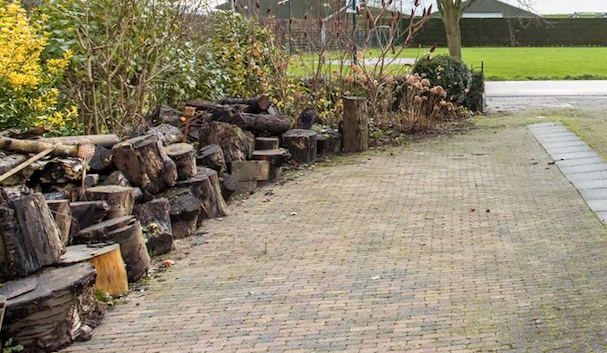
When we bought our new home last summer, and started to renovate it, one part of the garden was littered with a huge amount of old, partly decomposed, wooden logs. Initially I didn't know what to do with it, but then I discovered a new gardening technique, due to my research on permaculture, food forests, and edible gardens (for our new garden ofcourse!). It is called hugelkultur.
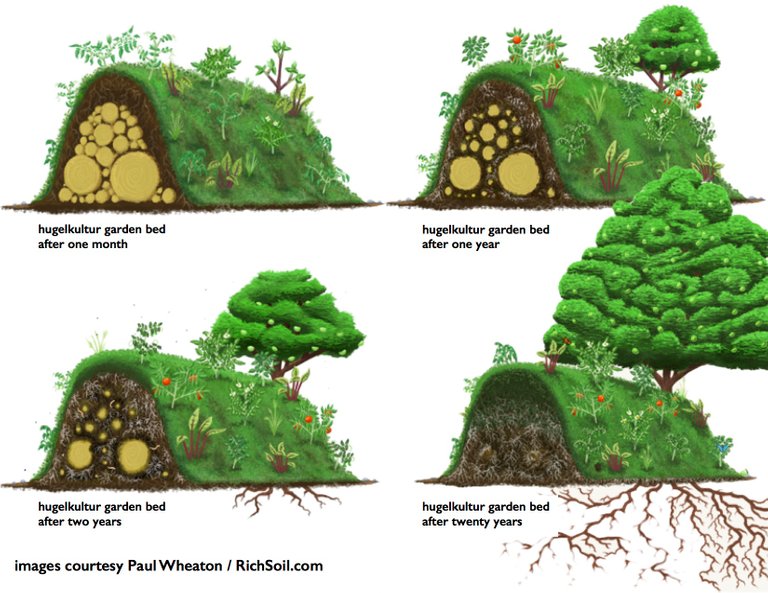
A hugelkultur or hugelbed is basically a trench, filled with wooden logs, smaller branches and other organic matter. The top gets covered with the soil from the trench. The end result looks like a raised garden bed or a small hill, depending on your particular setup. The idea behind this is, that the material in the hugelkultur holds moisture far better than a normal garden bed and provides your plants with enough nutrients for years, while the logs are slowly decomposing.
We had rented a power shovel for the weekend anyway, so I decided to use it to dig a large trench and create the hugelbed. This way I could make room and get rid of all those unsightly logs. Also, it was an excellent excuse to work on our future garden instead of on the house, which of course has more priority, if we want to move in any time soon.
Step 1: dig a shallow trench
Step 2: fill it with large logs, smaller branches and other organic material.
Step 3: Cover with the soil from the trench
Step 4: Add layers of compost and mulch (shredded leaves or woodchips for example) to prevent erosion, the growing of weeds and to keep in the moisture. Use a lot more than pictured below. I wasn't finished when I took this photo!
I'm leaving it like this over the winter. This spring I will plant artichokes, rhurbarb, cranberries and blueberries on the hugelbed, together with lots of poppy flowers, herbs and strawberries as a groundcover. Let's see what happens!
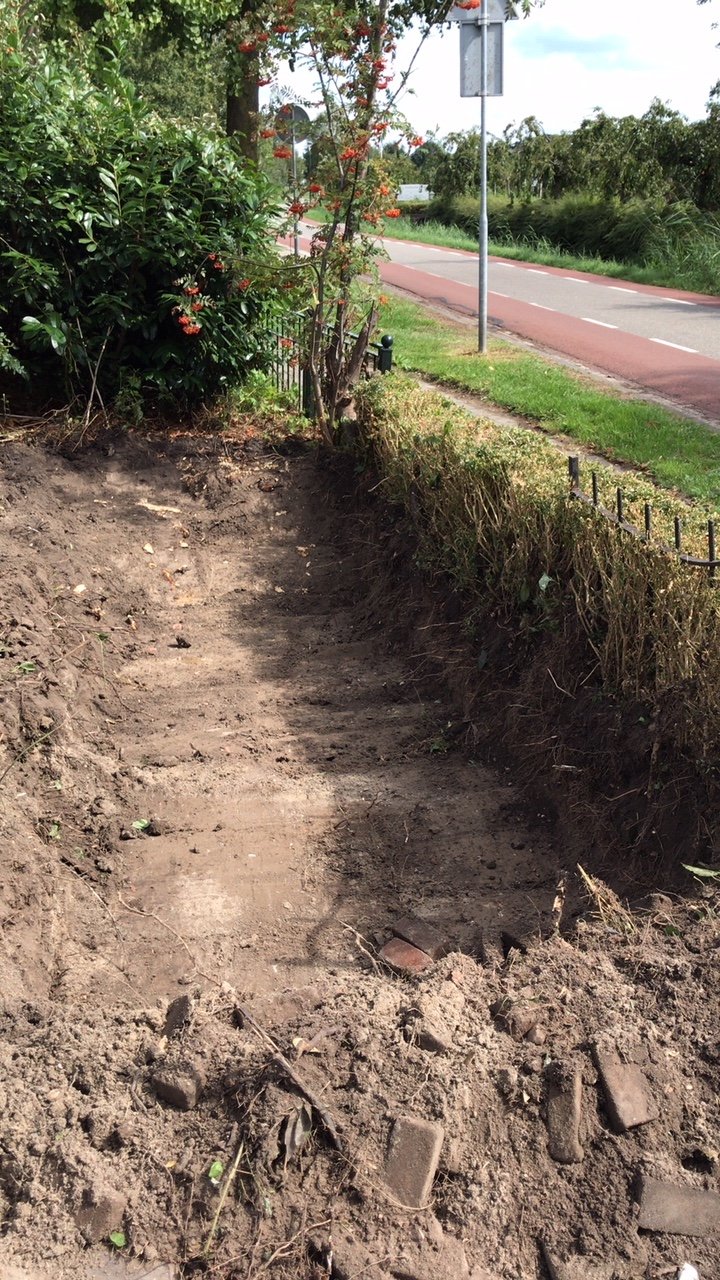
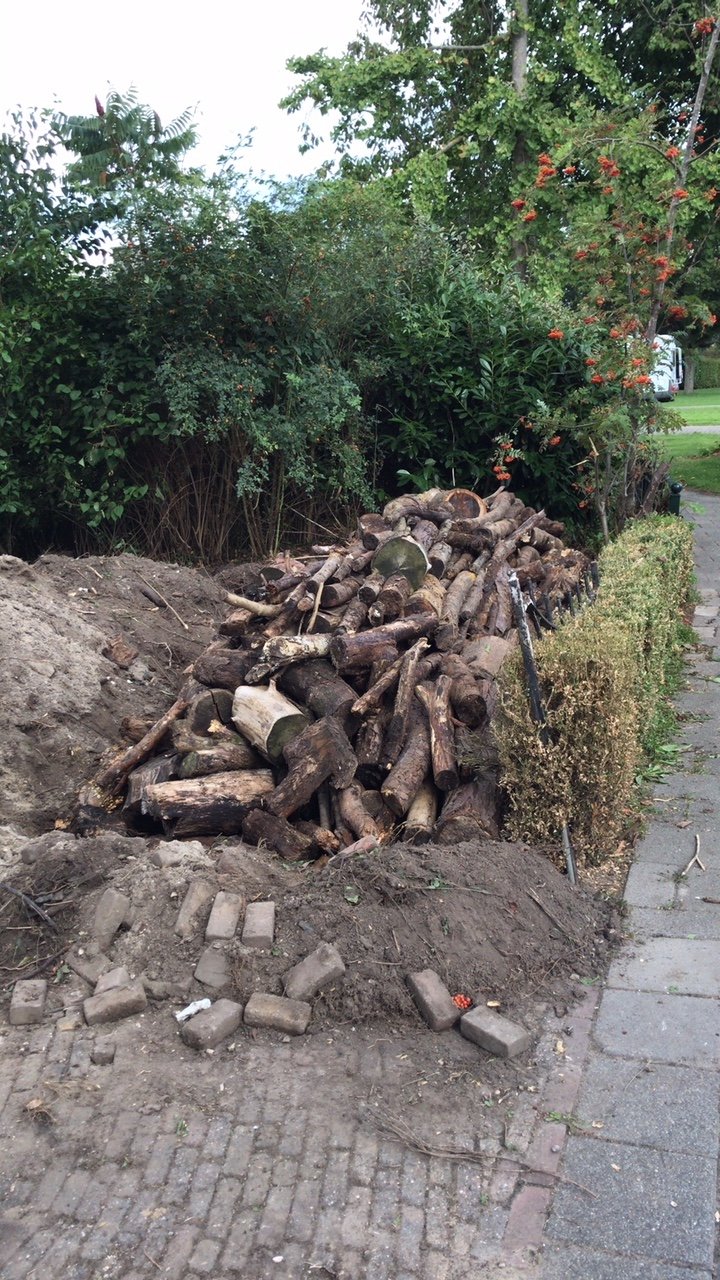
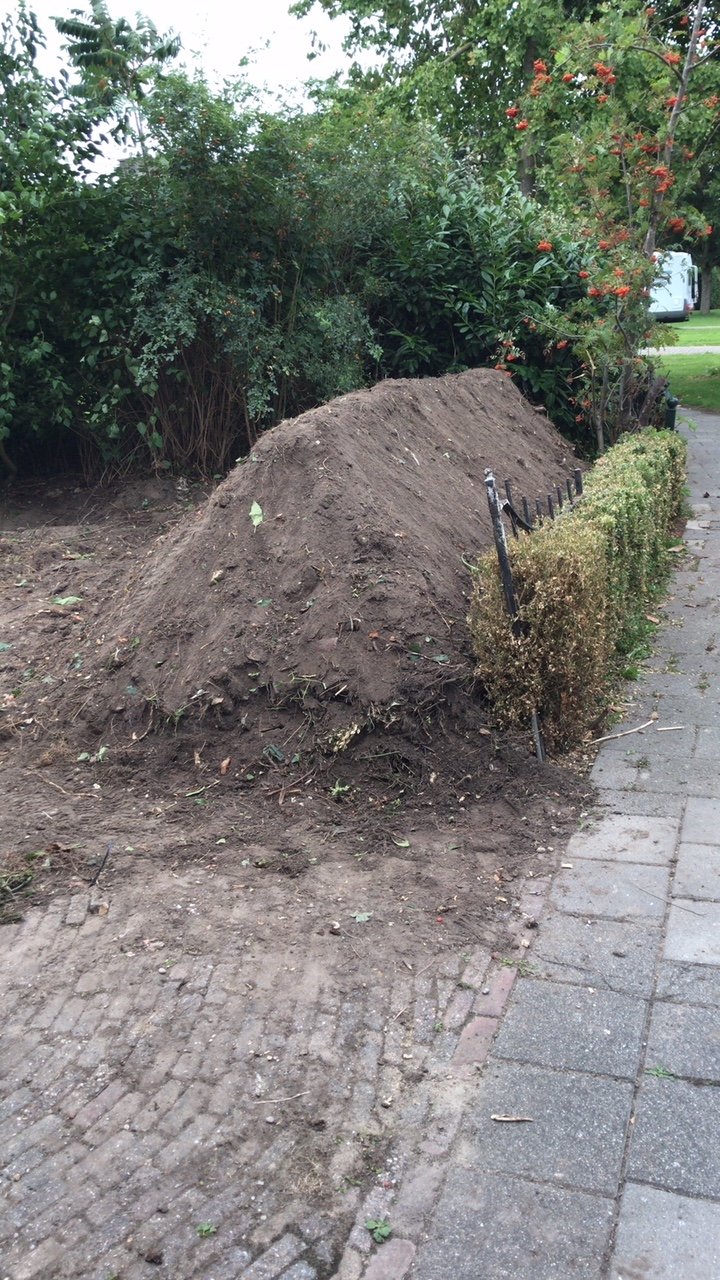
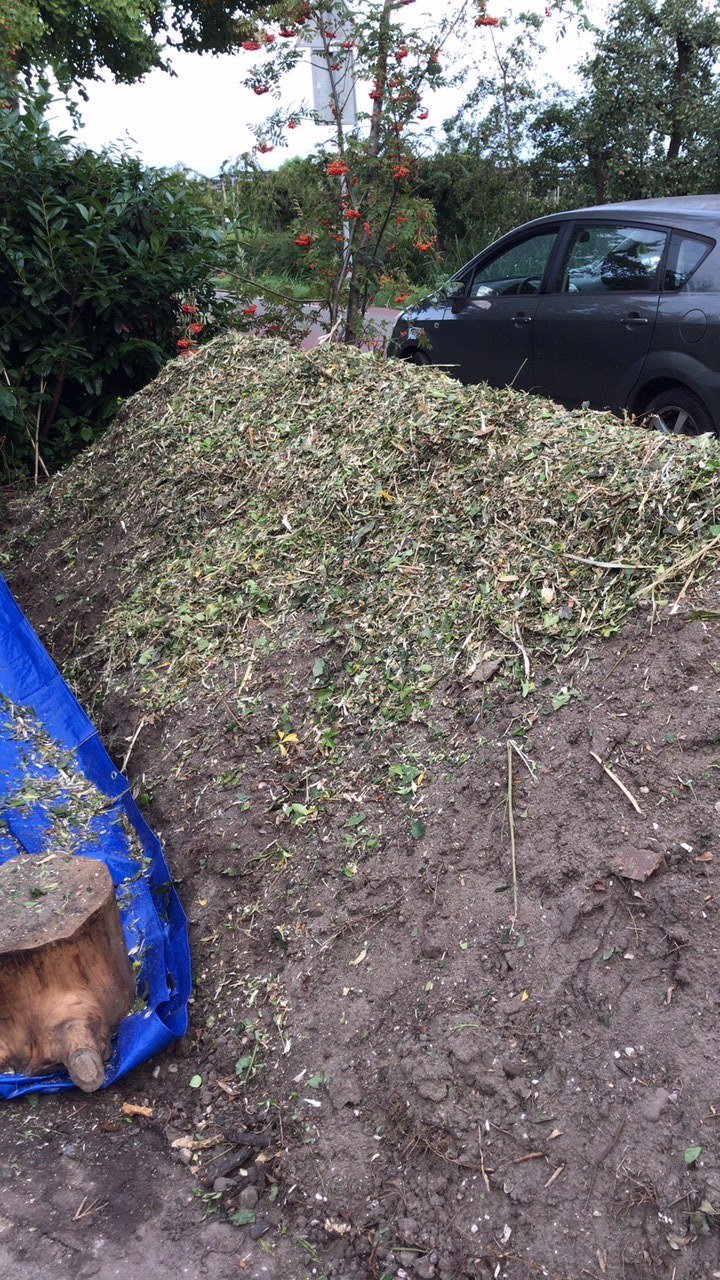
In my experience, you've made a bit too shallow hole and put not enough smaller diameter branches in the top layers. Also, the soil layers seems a bit thin and the whole structure is a bit narrow and tall, while it behaves better in time if it's wider and stockier.
Be prepared for nitrogen deficiency when planting in it, so my advice is to put a shovelful of compost or vermicompost in the hole for each plant.
@nateonsteemit Geoff did not actually made hugels as per Sepp's specification. Sepp works in a very different way and scale. What the team did in Jordan was pile biomass, but it was mostly farm residue, tree leaves, palm fronds, annual plants, not hardwood logs. The temperature differential results in condensation and hence some minimal moisture being added to the soil, at times where none is otherwise available. It must be also noted, that they had drip irrigation for all the plants they put in the initial round of planting, so the deep mulch is mostly for keeping the water in the soil. Decomposition happens very slowly in dry sites, if the biomass is inadequately moist.
You're absolutely right, I know. The soil layer is too thin and there's not enough smaller biomass present. But I had to work with the material on the site and it wasn't there at the moment. I'm planning on adding a lot of compost and straw on top of it at the end of the winter and using plants that like acidic soil, like blueberries and cranberries. I'm sure that over the years it will get it to be more balanced. Thanks for your tips!
I looked at the garden stones and bicycle lane and thought let's check if she is Dutch! I'm Dutch too so you my upvote:)
Thank you! I will follow you :)
That's fabulous @nerdi! I have watched with interest how passionately @nateonsteemit works on his hugelkultur and thanks to his resteeming your post I can get even more of an idea of how it works. I don't know that we'd get it right on our homestead. The ground is hard and we're suffering a bad drought in our corner of South Africa but I am inspired
I'm really curious what would happen if you built one in spite of the drought. Swales and hugelkultur are a huge part of what Geoff Lawton is doing on his "greening the desert" project in Jordan, and the successes he's having there are absolutely phenomenal. Quite literally a forest being made on top of rock faces in the middle of the Jordanian desert.
Thanks for the resteem, @nateonsteemit ! :)
Yeah, what Nate says :D, just try it, even if it is just a small hugel!
Awesome! I love Hügelcultures. Though the last one I helped build we dug around three feed deep. But exciting stuff. What are you going to plant into it?
Yeah, maybe it isn't deep enouhg, but let's see what happens over the years :) Lots of blueberries and cranberries, and some rhubarb and artichokes!
No reason to worry. As things grow they dig down with their roots anyway.
Artichokes sound lovely! :-)
You're killing it over there! It's very inspiring to see what you're getting done.
Thank you!
Nice work! It will be fun to watch this progress
Thank you. Will try to post updates :D
This post was shared in the Curation Collective Discord community
community witness. Please consider using one of your witness votes on us here for curators, and upvoted and resteemed by the @c-squared community account after manual review.@c-squared runs a
Very much appreciated, thank you! :-)
Congratulation for your Daily work!
Keep us informed on how It will change.😁👍
Steem on!
Posted using Partiko Android